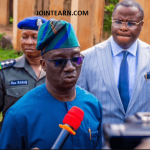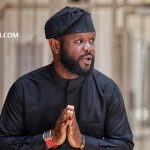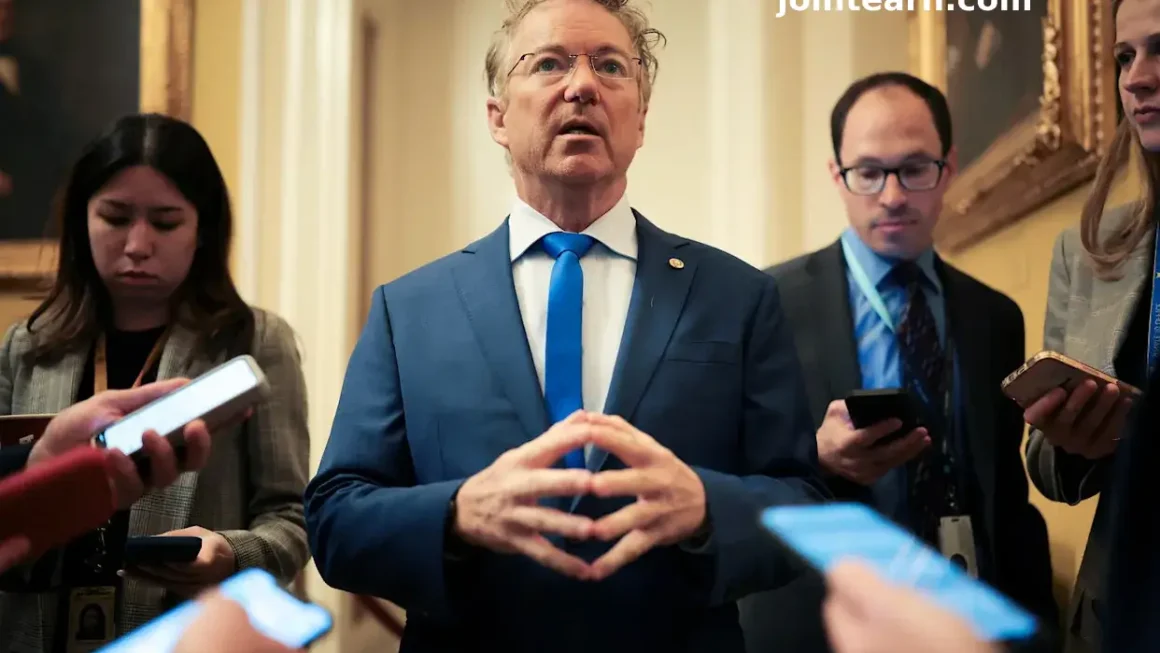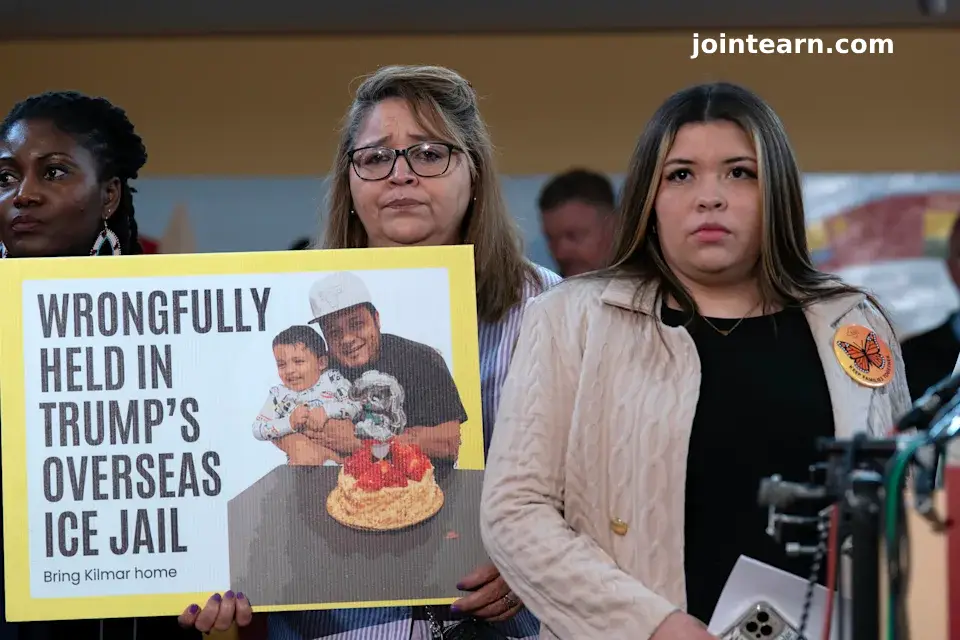In an interview with ABC News, President Donald Trump asserted that he “could” bring Kilmar Abrego Garcia back to the United States with a single phone call to Salvadoran President Nayib Bukele. However, despite Trump’s claim, the administration has maintained in court filings that the U.S. government does not have the authority to forcibly return Abrego Garcia, who was deported to El Salvador in mid-March.
Trump’s statement came during a Tuesday interview with ABC’s Terry Moran, where he was asked about Abrego Garcia’s deportation and whether he could intervene personally. Trump replied, “If he were the gentleman that you say he is, I would do that. But he is not.” He added that the decision was not his own to make, stating, “We have lawyers that don’t want to do this.”
Despite these comments, during a Cabinet meeting on Wednesday, Trump clarified that he had not personally reached out to Bukele about Abrego Garcia’s return. “I really leave that to the lawyers,” Trump explained. “They know the laws, and we follow the laws exactly.”
Legal Complications and Court Orders
Abrego Garcia, who had been deported to El Salvador, has become the center of a legal battle. A federal judge, an appeals court, and the Supreme Court have all instructed the U.S. government to “facilitate” his return after it was revealed that his deportation was a mistake. An immigration judge had ruled that while Abrego Garcia could be deported, he should not be sent to El Salvador. However, U.S. officials maintain that the United States cannot compel El Salvador to return Abrego Garcia, as he is in their custody.
A Department of Homeland Security official argued in court that “Abrego Garcia is being held in the sovereign, domestic custody of the independent nation of El Salvador. DHS does not have authority to forcibly extract an alien from the domestic custody of a foreign sovereign nation.”
Attorney General Pam Bondi emphasized the legal limitations in her comments this month, stating, “That’s up to El Salvador if they want to return him. That’s not up to us… If they wanted to return him, we would facilitate it.”
Trump’s Comments vs. Government’s Position
Trump’s remarks appear to conflict with the Justice Department’s legal stance. While he suggested the government could have brought Abrego Garcia back, the Justice Department has been clear that it does not possess the authority to intervene in El Salvador’s sovereign decisions.
In his ABC interview, Trump also doubled down on accusations that Abrego Garcia is a member of the MS-13 gang, referencing a social media image in which the letters “MS-13” appeared on Abrego Garcia’s knuckles. However, critics have pointed out that the image appeared to have been digitally altered, a claim Trump dismissed as “fake news.” Some experts, including retired police investigator Oscar Giron, have disputed the idea that the tattoos indicated gang membership, citing the changing nature of gang identifiers.
Abrego Garcia’s Legal Battle
Abrego Garcia’s legal team has argued that his deportation violated due process, as he was not given a chance to contest the evidence against him before being sent to El Salvador. The Supreme Court ruled that his deportation was “illegal,” and the government has been ordered to “facilitate” his return in accordance with legal protocols. The case has now entered its next phase, with the Justice Department being scrutinized for its compliance with court orders.
Attorney David Leopold, a former president of the American Immigration Lawyers Association, suggested that the case might center on whether the U.S. is indeed paying for Abrego Garcia’s detention in El Salvador, potentially giving the U.S. some leverage. “They subcontracted the detention of the folks they sent to El Salvador,” Leopold noted, referring to the U.S. government’s role in funding Salvadoran prisons.
Homeland Security Secretary Kristi Noem confirmed that if Abrego Garcia were returned to the U.S., the administration would deport him again immediately, underscoring the ongoing tension between legal obligations and political priorities.
Next Steps in the Case
U.S. District Judge Paula Xinis has expressed frustration with the government’s lack of transparency regarding its efforts to facilitate Abrego Garcia’s return, considering the possibility of contempt proceedings. She has ordered the government to answer detailed questions about its actions by May 9, 2025.
The legal team representing Abrego Garcia has vowed to pursue all available legal avenues to ensure his return and a fair trial. “We will pursue every legal avenue to secure Mr. Abrego Garcia’s return home to his family, so that he can get a full and fair trial on the allegations against him,” they said in a statement.
As the case continues, it remains to be seen whether Trump’s public statements will impact the ongoing legal process or the U.S. government’s approach to Abrego Garcia’s situation.












